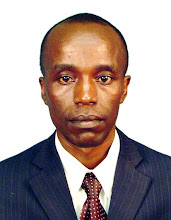Knowledge, being such slippery and elusive term to define, has led to so many theories and assumptions to prop up with no converge - more confusion and chaos. Knowledge Management Systems (KMS) - some commentators call them Expert Systems (ES) - have been developed to aid the knowledge management efforts. These KMSs try to simulate the intellect of the human expertise in creating, storing, sharing and transferring knowledge. Simply said, KMS is a process, not knowledge itself.
However, the management of this knowledge needs some sort of classification to give some semblance of order. In 2001, Michael Earl tried to map knowledge management into a taxonomy of seven KMS schools, each based on existing and observable practice. This taxonomy grouped these schools into three categories, namely:
- Technocratic
- Economic
- Behavioural
In their supplemental paper to Earl's framework, Deborah Blackman and Steven Henderson (Blackman and Henderson, 2005) have helped summarise the seven schools as follows:
- Systems school. This school puts emphasis on knowledge creation with no help available, that is further validated by esteemed peers, codified and stored in a KMS. To me, this is "learning the hard way". A question arises: What criteria is used to label one an esteemed peer, or who holds these esteemed peers in such high esteem?
- Cartographic school. In this school, KMS identifies only the knower of the tacit knowledge i.e. it is a directory of experts
- Process school. This school consists of two components arising from business process reengineering (BPR) i.e. the description of the process plus output generated by such process. It seems to be a hybrid between systems and cartographic schools.
Earl classified these three schools i.e. process, cartographic and systems in the "technocratic" category. They lack knowledge on business performance improvements, even though this missing knowledge is available within the organization and can be transferred effectively and accurately.
- Commercial school. As the name suggests, this school seeks to market and sell knowledge as a commodity. Unlike the technocratic schools where knowledge is accessed and shared to knowledge seekers, this school restricts knowledge to customers an organization considers profitable. It is the only one Earl categorized as "economic".
- Organizational school. This school focuses on collaborating knowledge in a learning community by strengthening the ties between different knowledge holders. It is a community of practice (CoP).
- Spatial school. This school fronts its argument that modern management practices - such as hierarchical structures -, commercial buildings and technology are an antithesis to a conducive environment for learning, knowledge sharing, discussions and bonding. It suggests that space must be set aside for exciting new ideas to emerge. Thus the name spatial.
- Strategic school. The name says it all. A word of caution though: it doesn't mean that all the other schools cannot support an organization's competitive strategy. The difference of thought with this school compared to others is that in the other schools, not all knowledge is immediately strategic. Also, this school looks at, in addition to the internal improvements and problem solving, the bigger corporate picture.
References
Blackman, D., Henderson, S.(2005), "Know ways in knowledge management", The Learning Organization, Vol.2 No.2, pp.152-168.
Blackman, D., Henderson, S.(2005), "Know ways in knowledge management", The Learning Organization, Vol.2 No.2, pp.152-168.

Yes exactly you explained about the KM schools with technocratic, economic and behavioural. and all these are explaining there futures also
ReplyDeleteRichard;
ReplyDeleteperfectly u explained about Earl's 7 school.i like your definitions.
First can I suggest that using funny words like 'slippery' and 'elusive' suggest that you are not really comfortable with the idea that terms like 'knowledge' and KM/KMS need to be interpreted in the context that they are used. You really have to deal with that. A definition can really only help if the term is interpreted in the same way in all contexts where it is used.
ReplyDeleteHaving said that, I have to disagree completely with the statement that Knowledge Management Systems (KMS) are the same as Expert Systems (ES). They are not at all the same. If you had referenced instances where such commentators had stated or implied the equivalence, it could have been challenged at source or how you interpreted them. Give more references! One is not enough for an important article (and you haven't even cited Earl).
The biggest weakness with this article (as with others) is that it is abstract. Try starting with the features of real organisations and then connect these ideas to practical concerns.
Thanks for you comments. Actually in this post, I was consciously aware that it was a "skeleton" and was going to add more "meat" later. Also, I remember reading somewhere - I actually can't recollect whether it was in the book of Laudon and Laudon, Turban et al., the internet - about the commentators I was alluding to in regard to KMS and ES.
ReplyDeleteNotheless I will post another article on KM models.
Mark,
ReplyDeleteFrom your comment to my blog's article titled 'Earl's 7 schools of KM', I have found one commentator who has analyzed a course where knowledge KMS is equated to ES. Please read TD Wilson's article on:
'The nonsense of knowledge management'
and go straight to the section 'The view from the business schools'.
But thanks for the comment and I will try to move away from only abstract definitions to application in an organizational context
I'm interesting in 'Earl's 7 Schools of KM' for using Community Service Design. Thank you !
ReplyDelete